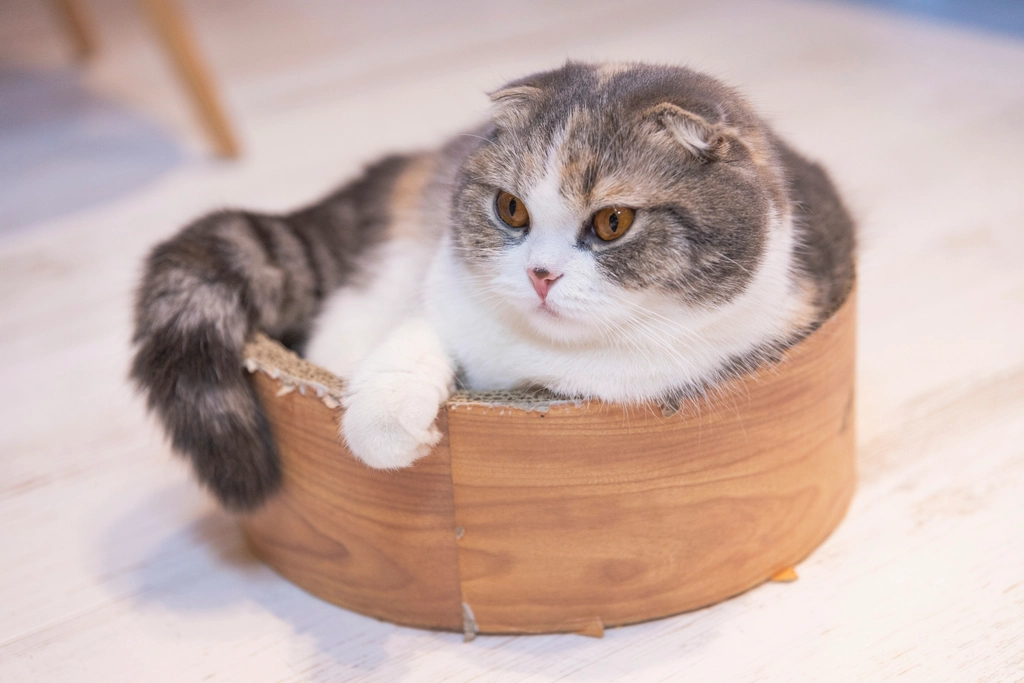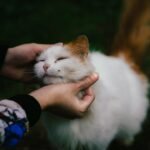Have you ever wondered why some cats seem to blossom with gentle routines while others turn anxious if their world changes overnight? As any cat lover knows, felines have their quirks—but some breeds are especially sensitive to the emotional climate at home. These special cats crave stability, gentle care, and the kind of love that feels like a warm blanket on a chilly night. Let’s dive into the world of nine cat breeds that don’t just want affection—they need emotional consistency to truly thrive.
Ragdoll: The Gentle Soul Who Needs Steady Love

Ragdolls are famously gentle and affectionate, often likened to floppy dolls because of how relaxed they become in your arms. But behind their calm eyes is a heart that longs for predictable love and attention. If their routine is suddenly disrupted, Ragdolls can become withdrawn or anxious, sometimes even refusing to eat. They thrive when their family greets them at the door, follows regular feeding times, and offers soft words and cuddles. Ragdolls are especially sensitive to loud arguments or sudden changes in their environment. If you’re someone who travels a lot or has an unpredictable schedule, this breed might struggle. Ragdolls teach us that love isn’t just about quantity—it’s about showing up in the same gentle way, every day.
Siamese: The Vocal Companion Who Feels Deeply

Siamese cats are famous for their expressive voices and their strong bonds with their humans. They’re not afraid to tell you when something feels off—expect dramatic meows if you come home late or break their favorite routine. Siamese cats feel changes intensely; even a new piece of furniture can make them uneasy. They need their people to offer reassurance and stick to a familiar schedule. When treated with emotional consistency, Siamese cats reward their owners with loyalty and affection that runs deep. In a chaotic household, though, they may become clingy, anxious, or even act out. These social butterflies need you to be their anchor in a swirling world, offering reliable affection and calm.
Burmese: Craving Closeness and Calm

Burmese cats are sometimes called “velcro cats” because of how closely they stick to their owners. They aren’t just looking for a lap to sit in—they want a heart to connect with. Sudden changes, like a new pet or a move, can throw them off balance, leaving them withdrawn or overly needy. Burmese thrive on routines: regular playtimes, mealtimes, and a steady supply of gentle affection. If their person’s mood shifts sharply, Burmese cats often mirror this, becoming anxious or upset themselves. They need a calm, loving environment where emotions run steady rather than stormy. For these cats, emotional consistency is as important as food or water.
Scottish Fold: Sensitive Ears, Sensitive Heart

With their adorable folded ears and round eyes, Scottish Folds seem built for cuddles. But their emotional sensitivity runs even deeper than their looks suggest. These cats can pick up on stress, sadness, or anger in the home, sometimes hiding or acting withdrawn when the mood turns sour. They don’t cope well with frequent changes or loud, unpredictable environments. Scottish Folds need owners who are patient, gentle, and able to offer a safe, stable routine. If given this consistency, they’ll respond with deep trust and affection, curling up beside you as a living, purring comfort blanket. Their happiness depends on the emotional weather at home.
Russian Blue: The Shy Observer Who Needs Predictability

Russian Blues are often described as shy or reserved, especially around strangers. But with their chosen person, they’re loving and loyal—so long as life stays predictable. These cats are easily startled by loud noises, unexpected visitors, or sudden changes in their environment. A Russian Blue needs a home where routines are respected and chaos is kept at bay. When their world is stable, they’ll shower their family with quiet affection. But if routines crumble, Russian Blues may retreat into hiding, only emerging when they sense calm has returned. Emotional consistency helps them blossom from shy shadows into treasured companions.
Birman: The Peaceful Spirit Who Needs Harmony

Birmans are the epitome of grace and serenity, often acting as the peacemakers in multi-pet households. However, they draw their sense of security from a peaceful, harmonious environment. Sudden arguments, loud noises, or unpredictable behavior can unsettle a Birman deeply. Regular routines and soft-spoken words help them feel secure. These cats are sensitive not only to their own emotions but also to the emotional climate of those around them. When they sense tension or sadness, they may become anxious or withdrawn. For a Birman, emotional consistency is like sunlight—essential for their well-being and happiness.
Oriental Shorthair: Expressive and Emotionally Tuned-In

Oriental Shorthairs are known for their talkative, lively personalities, and they’re deeply tuned in to the moods of their owners. A sudden change in your tone or a missed play session can leave them feeling insecure. These cats form strong attachments and expect a steady stream of attention and affection. If life gets hectic or unpredictable, Oriental Shorthairs may develop behavioral issues or anxiety. They need their families to provide not just physical care, but also a reliable emotional presence. With the right consistency, they become confident, affectionate companions, always ready to share their opinions (loudly).
Tonkinese: The Sensitive Socialite

Tonkinese cats are the life of the party—if the party is calm, loving, and full of familiar faces. These highly social felines crave companionship and can become anxious if left alone for long periods or if their routines are disrupted. They’re sensitive to emotional changes at home, picking up on stress or sadness in their humans. Regular playtime, affection, and a predictable daily rhythm help them feel secure. Without emotional consistency, Tonkinese cats may become clingy, vocal, or even depressed. They remind us that even the most outgoing cats need the steady reassurance of a loving, stable environment.
Sphynx: The Affectionate Attention-Seeker

Sphynx cats, famous for their hairless bodies and oversized ears, are also known for their deep need for attention and affection. They thrive on physical closeness, following their humans from room to room and even snuggling under the covers at night. Sphynx cats are deeply affected by changes in their emotional environment. If their routine of cuddles and play is broken, they can become anxious or lonely. These cats need owners who can offer not just love, but steady, reliable care and affection. With emotional consistency, Sphynx cats blossom into confident, joyful companions who make every day a little brighter.
Persian: Calm and Consistency Over Chaos

Persians are the royalty of the cat world, but their regal appearance masks a need for calm and steady routines. They’re not fond of surprises or loud environments, preferring peaceful homes where their routines are respected. Persians can become stressed by changes in their living situation or emotional upheaval in their families. When life is predictable, Persians show their gratitude with gentle purrs and loving gazes. But if chaos reigns, they may retreat, becoming less playful or even developing health issues. For Persians, emotional consistency is the key to unlocking their affectionate, mellow nature.
Devon Rex: Quirky Yet Emotionally Sensitive

Devon Rex cats are quirky, playful, and famous for their elfin features, but they’re also surprisingly sensitive to emotional shifts at home. They form strong bonds with their people and can become anxious if left alone too often or if routines are disrupted. Devon Rexes pick up on their owner’s moods and will often try to comfort those who are sad or stressed. However, when faced with emotional inconsistency, they may act out or become withdrawn. A steady routine filled with love, play, and gentle reassurance helps these charming cats feel safe and secure.
Turkish Angora: Thriving on Stability and Attentive Love

Turkish Angoras are elegant, energetic cats with a strong need for routine and emotional stability. They’re quick to notice changes in their home or family dynamic, which can make them feel insecure. Turkish Angoras flourish in households where their emotional needs are met with patience and consistent care. If their world is turned upside down, they can become anxious or even aggressive. Regular affection, play, and a stable daily rhythm help these cats feel grounded and content, allowing their playful personalities to shine.
Himalayan: Gentle Spirits Needing Tranquility

Himalayans are gentle, affectionate cats who thrive in tranquil, predictable environments. They dislike loud noises, sudden changes, or emotional drama in their homes. These cats need gentle handling and a consistent routine to feel secure. When their environment is stable, Himalayans reward their owners with affectionate companionship and an almost zen-like calm. Without emotional consistency, they may develop stress-related issues, including over-grooming or hiding. Providing a peaceful, loving home is essential for the Himalayan’s well-being.
Chartreux: The Quiet Observer Who Values Routine

Chartreux cats are quiet, observant, and deeply loyal to their families. They often form strong bonds with one or two people, relying on steady routines to feel secure. Chartreux cats can become anxious or withdrawn if their emotional needs are not met or if routines are disrupted. They appreciate calm environments and gentle interactions. Chartreux cats thrive when their owners offer regular affection, play, and a stable daily life. Without this consistency, they may retreat into solitude, missing out on the joy of companionship.
British Shorthair: The Stoic Companion with Hidden Sensitivity

British Shorthairs might seem stoic and independent, but they have a hidden need for emotional security. They enjoy routines and are unsettled by sudden changes or instability in their environment. British Shorthairs are sensitive to their owner’s moods and can become stressed if their home life is chaotic. They do best in homes where gentle affection and predictable schedules are the norm. When their need for consistency is met, British Shorthairs show a sweet, affectionate side that endears them to everyone they meet.
Norwegian Forest Cat: The Nature Lover Who Needs Emotional Roots

Norwegian Forest Cats are known for their majestic coats and adventurous spirits, but they’re also deeply attached to their families. They enjoy routine, familiar faces, and gentle affection, feeling secure when their world is stable. Norwegian Forest Cats can be sensitive to emotional shifts in their environment, reacting with anxiety or withdrawal if their routine is disrupted. These cats need patient, consistent care and a calm home in which to thrive. With emotional stability, they become devoted, loving companions who bring a touch of the wild into the heart of the home.

Linnea is a born and bred Swede but spends as much time as possible in Cape Town, South Africa. This is mainly due to Cape Town’s extraordinary scenery, wildlife, and atmosphere (in other words, because Cape Town is heaven on earth.) That being said, Sweden’s majestic forests forever hold a special place in her heart. Linnea spends as much time as she can close to the ocean collecting sea shells or in the park admiring puppies.






